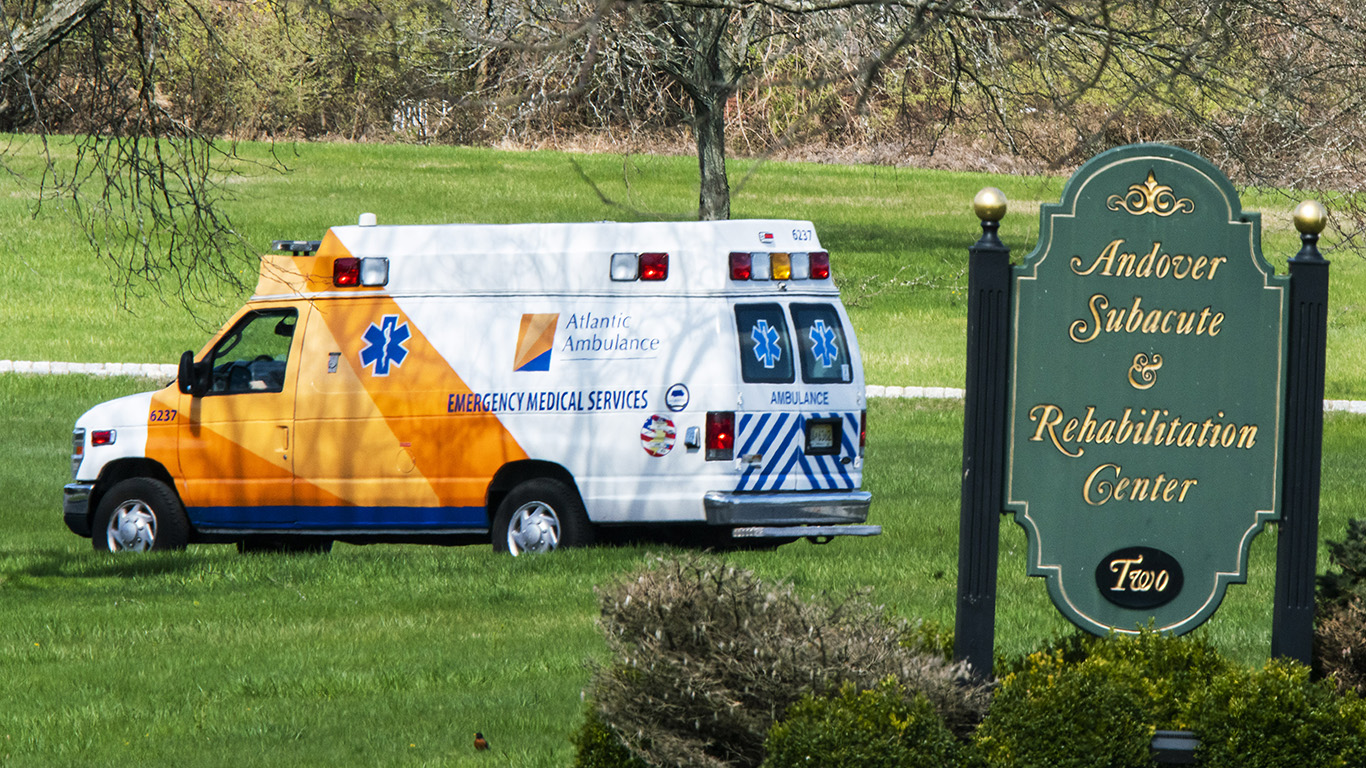New York is now allowing visitors to see loved ones at assisted living homes that are COVID-free for 14 days, up from 28 days under previous guidance.
Family members and friends of residents at the state’s nursing homes and assisted living homes have been urging the state for months to ease its March 13 ban on most visits. The state’s guidance has allowed visits for medically necessary or end-of life services.
New York announced July 10 that it would begin allowing restricted visits at nursing homes and assisted living facilities that haven’t had a COVID-19 case among residents or staffers for 28 days.
Visits are limited to outdoor areas with weather permitting, though visits of no more than 10 individuals in a well-ventilated space can be allowed in “certain limited circumstances.”
But loved ones of residents at homes housing the state’s elderly that have yet to meet the benchmark have expressed frustration and questioned why the state’s threshold was above the federal 14-day incubation period for COVID-19.
The 28-day threshold for restricted visits still applies to nursing homes.
State Department of Health spokesperson Jonah Bruno said the state is easing the policy just for assisted living homes because outbreaks are “less common” than at nursing homes.
“We understand how difficult the pandemic-related lockdowns have been for all New Yorkers, especially for children in nursing homes and their families,” Bruno said. “Outbreaks in pediatric nursing homes and adult care facilities have fortunately been less common and acute than at adult nursing homes, which has allowed us to expand visitation at these facilities.”
State Health Commissioner Howard Zucker has defended the visitation policy as protecting a vulnerable population from the risk of infection by outside visitors. Employees of nursing homes and adult care facilities must be tested once or twice a week under a May 10 executive order.
Nearly 6,500 residents have died or likely died of COVID-19 at nursing homes as of Tuesday, according to state Department of Health data. The state’s data also includes at least 177 deaths among residents of adult care homes.
The state hasn’t reported how many nursing home and assisted living residents have died at hospitals, or how many residents tested positive for COVID-19.
Bruno said the health department will keep monitoring assisted living homes “to ensure this action does not lead to an increase in cases.”
The state’s move drew applause from Stephen Hanse, president and CEO of the New York State Health Facilities Association and the New York State Center for Assisted Living.
“It has been since early March of this year that adult care residents have been unable to receive visitors in person because of the COVID-19 pandemic,” Hanse said.
He said residents have become skilled at using digital tools like Skype to connect with loved ones, but added: “digital interaction doesn’t compare to the joy of in-person interaction.”
“We are hopeful that a similar plan will soon be implemented for skilled nursing facilities,” Hanse said.
The state’s restricted visitation policy only allows visits of up to two people, and only 10% of the residents can be allowed visitors at any time. Visitors must also undergo temperature checks, follow social distancing rules and wear protective gear.



